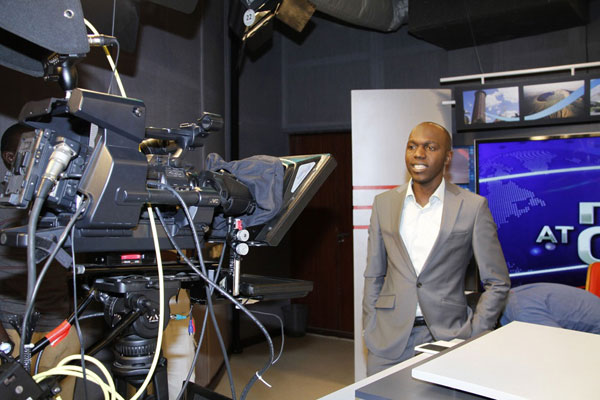World agency allows 30 African States to delay digital TV move

Thirty African countries have been allowed by the International Telecommunications Union to extend their digital migration beyond the June 2015 global deadline.
Countries that have asked for, and been granted, an extension include the technologically advanced North African giants Tunisia, Morocco, Algeria and Egypt.
Kenya’s neighbours Ethiopia, Sudan, Somalia and Eritrea further afield, have also been allowed to continue using analogue signals beyond June.
This revelation contradicts a key argument by the Communications Authority of Kenya director-general, Mr Francis Wangusi, that Kenya must migrate by June or attract sanctions.
“Kenya had made a commitment to adhere by the ITU deadline and will not seek an extension. We have to migrate or we may attract sanctions if we do not remove transmitters that are within 20 kilometres from international borders since we will be interfering with broadcasting signals of neighbouring countries that will have migrated,” Mr Wangusi has said.
Millions of Kenyans have not been able to access information through their TV sets for more than a week since the government shut down analogue broadcasts in the country on February 14.
BREACH OF RIGHTS
Mr Wangusi maintains that Kenya will not seek an extension because Africa belongs to Region One, which is slated for migration in 2015.
The government has denied the big broadcasters digital licences and even after being asked by the Supreme Court to consider granting them, Mr Wangusi, with the support of the government, has been taking media companies in circles.
Constitutional experts are increasingly convinced that the switching off of the leading TV stations, which together command more than 90 per cent of the TV audience, is a serious breach of constitutionally guaranteed rights.
CA’s aggressive handling of local companies is causing disquiet in the private sector, where businesses invest billions of shillings on the strength of government licences.
Mr Wangusi has refused to give big media houses, operating under the African Digital Network (ADN) consortium, a grace period to set up their own digital broadcasting infrastructure.
If granted the extension, the consortium plans to spend more than Sh800 million on upgrading broadcast infrastructure and another Sh4.5 billion on set-top boxes.
OWNED BY CHINESE
The government wants the Nation Media Group, which also owns the Daily Nation; Royal Media Services and the Standard Group to put their programmes on Signet, owned and operated by the government, and Pang, which claims to be owned by the Chinese, but has a mystery shareholder registered in the British Virgin Islands, a notorious tax haven.
In the past, foreign firms wishing to do business in Kenya, have bought favours by giving shareholding to local officials, held in shell companies in tax havens.
It remains to be seen whether meeting the deadline is a sufficient reason to block an investment of nearly Sh6 billion by media companies.
CA’s hardline stance against the media houses comes in the wake of a new annual survey, which shows that Kenya has plummeted 10 places in the World Press Freedom Index.
The Press Freedom Index reflects the degree of freedom that journalists, news organisations, and citizens enjoy in each country, and the efforts made by the authorities to respect and ensure respect for this freedom.
At position 100, Kenya has dropped to the bottom half of the 180 surveyed countries and press freedom in the country is at its worst since 2007. A new survey by Ipsos Ltd also shows that a minority (38 per cent) of Kenyan television set owners, most of whom are in the urban areas, have acquired set-top boxes and are able to access the digital content.
This means that a majority of Kenyans, most of whom are in the rural areas, have been in total television darkness ever since the forcible shutdown of the analogue signals for NTV, QTV, KTN and Citizen TV, more than a week ago.
Source: Daily Nation